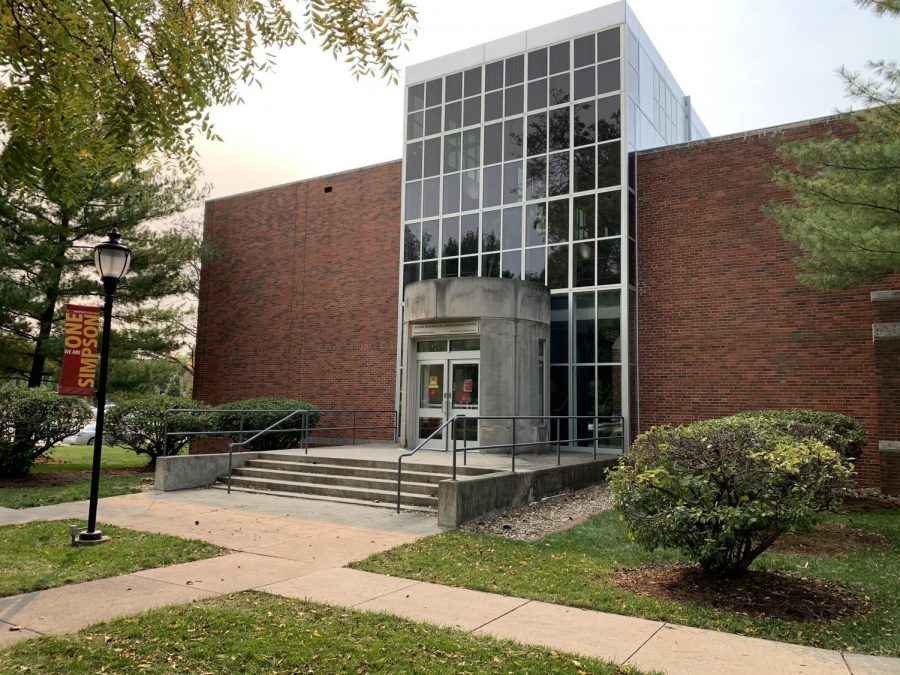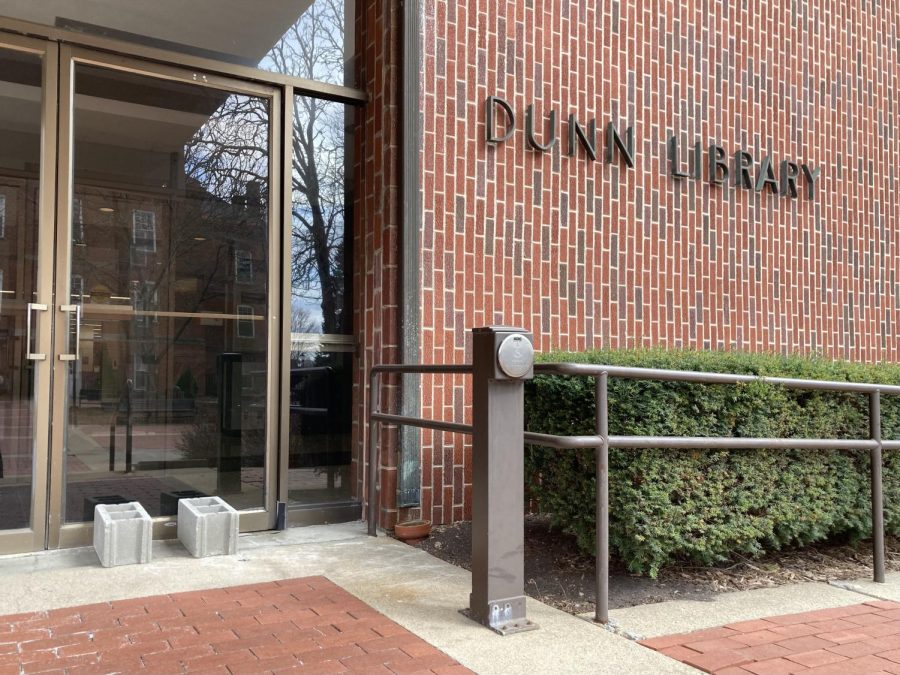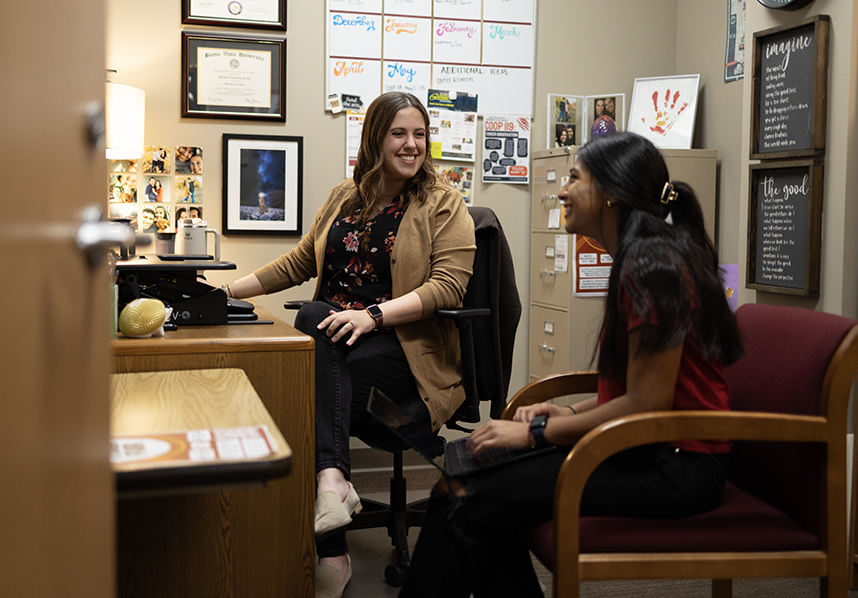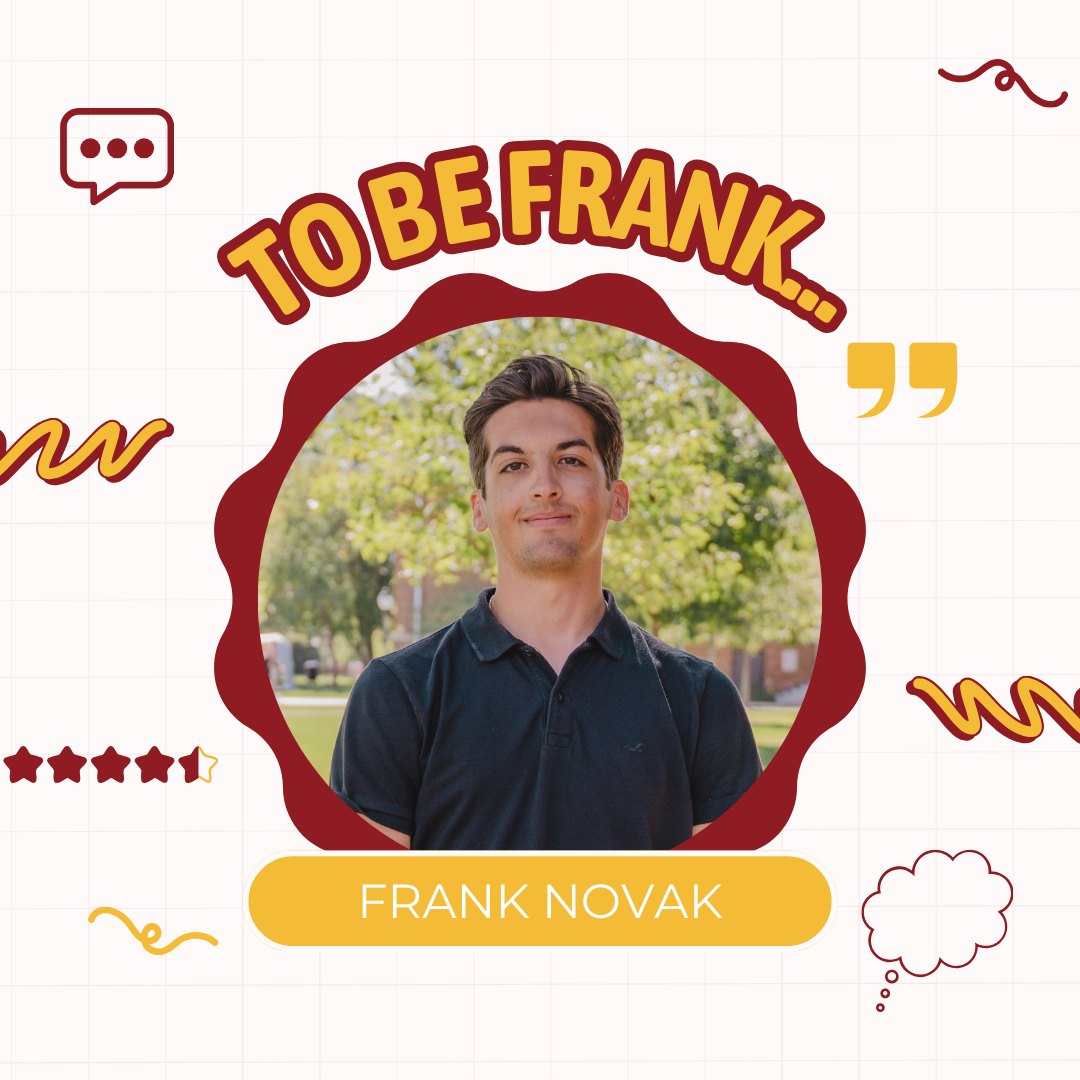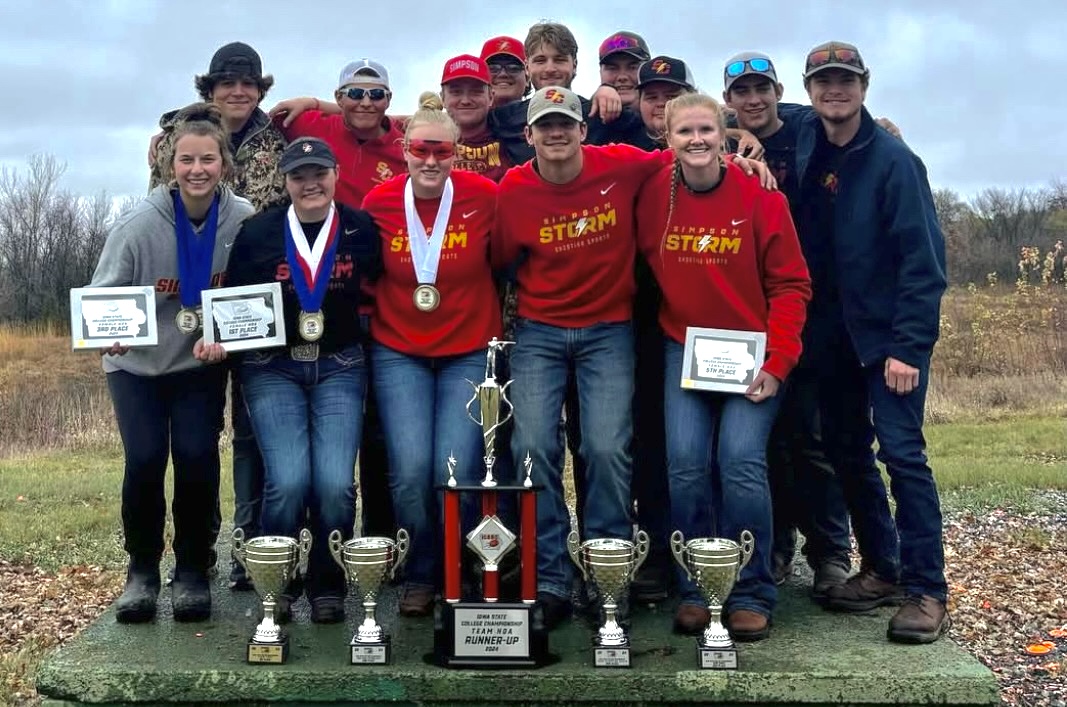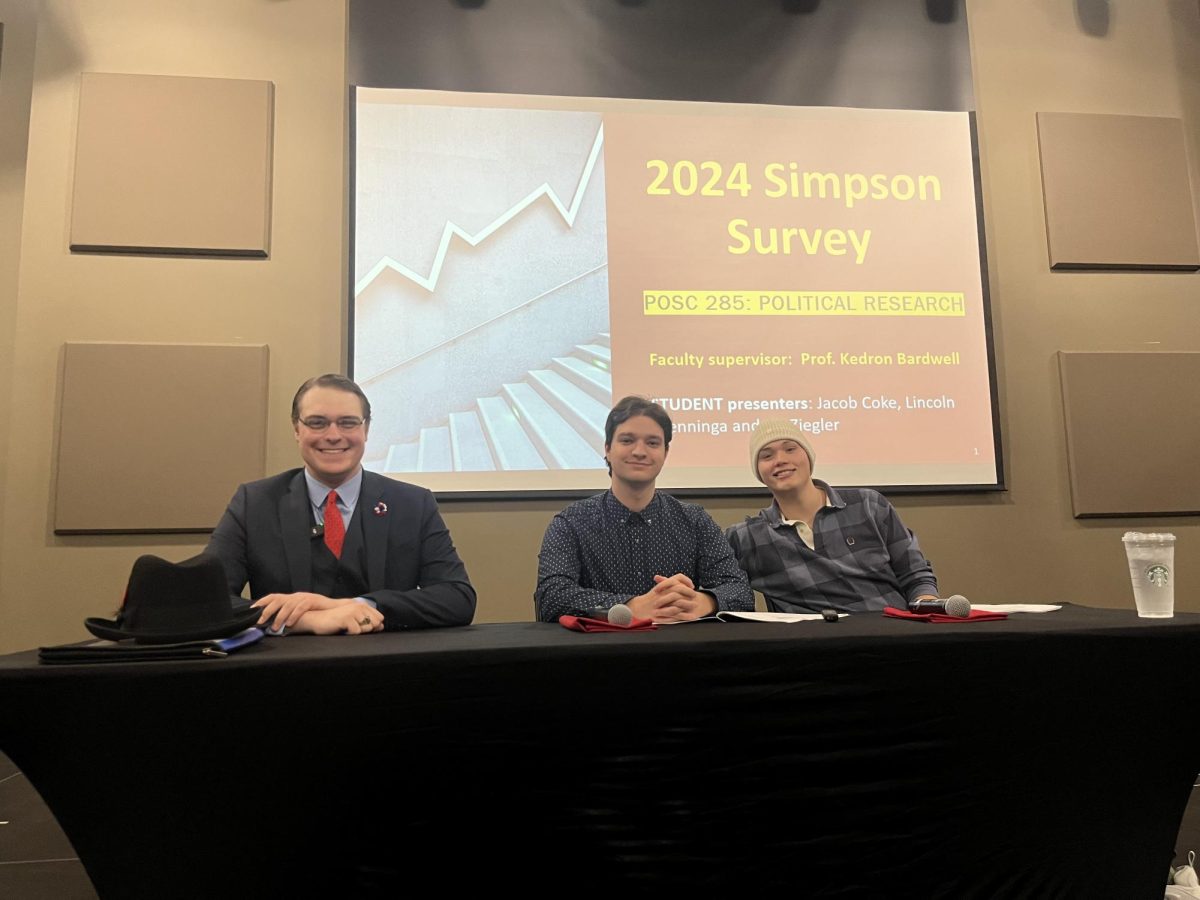Registration season is upon us, and if you’re like most students, you’ve been busy creating possible course schedules, designing or reviewing your four-year plan and meeting with your advisor(s). If you’re looking for an extra class to fulfill a graduation requirement, or if you’re even slightly curious and want to try something new, I’d recommend adding either Physics 151 or Physics 191 to your schedule this fall.
Hey, wait! Before you run away screaming, just give me a few minutes of your time to explain. Even if you don’t want to be an engineer or a theoretical astrophysicist when you graduate—even if you’re not planning on a Physics major or even a Physics minor—even if you groan at the thought of all the equations and formulas—you might be pleasantly surprised when you learn what the Physics Department at Simpson has to offer.
And yes, even all you non-STEM majors, I promise there’s something in it for you, too. I would know because when I came to Simpson College, I originally planned to study English. Now, I’m approaching graduation with a double major in English and Physics, equipped with the full liberal arts college experience. One class is all it took for me to open the door to a whole new realm of possibilities, so I want to extend the same invitation to you. Push your fears and doubts aside for a moment, and listen with an open mind.
Now, without further ado, here are the top five reasons I think you should take a Physics course at Simpson:
1) It’s not like physics class in high school.
You know that physics class you took in 12th grade, probably taught by the same teacher who also taught chemistry and Earth science and coached the basketball team after school? Yeah, it turns out that wasn’t the best opportunity to learn what physics was really about. According to a 2019 survey by the American Institute of Physics, only 35% of high school physics teachers have a degree in physics or physics education. If you count those with physics or physics education minors, that brings the total to 44%, which is still less than half. Almost two-fifths of physics teachers primarily teach or specialize in other subjects, and this is especially true of teachers in smaller rural communities and schools with fewer resources.
All that to say- if you were confused in high school physics, it might not have been your fault. Physics is a notoriously difficult subject to learn and even more challenging to teach, which is why it’s best to learn it from people specifically trained to do so. Here at Simpson, you don’t have to worry because the physics professors are plenty qualified in the subject. Professor of Physics David Olsgaard, who designed most of the current physics curriculum at Simpson, hand-picked textbooks and course materials that are not only intuitive for students to follow but also created by experts in physics education. I’ll admit I didn’t do so great in my high school physics class, but I was able to really thrive under the instruction of a professor who took an innovative approach to make sure students like me really understood the material.
2) You’ll do really cool experiments.
If you thought that Intro Physics lab would be boring, think again! Even in the first semester, you’re able to dive right into doing exciting experiments. One of the highlights of the fall semester is the rocket lab, where students go outside and launch model rockets hundreds of feet in the air and calculate their velocity, acceleration and maximum height. The Intro Physics classes also get to fire a ping-pong cannon, built many years ago by the Simpson Physics and Engineering Club, that can shoot ping-pong balls faster than the speed of sound! You’ll be amazed to watch a flimsy plastic ping-pong ball puncture a hole through a pop can, propelled only by atmospheric pressure. Lasers, Raspberry Pi and AI technology are also explored.
3) Unlock the secrets of the universe.
Physics is all around you. It governs everything, from the tiniest fundamental particle to the largest galaxy in the vast expanse of the cosmos. Physics is at the cutting edge of science, discovering how and why everything works the way it does. Once you start unraveling the mysteries of the universe, you’ll never see the world the same way again. At Simpson, you don’t have to wait to explore fascinating topics like Einstein’s special theory of relativity. At the end of your first semester of physics, you’ll get to learn about time dilation and investigate the possibilities of time travel and interstellar spaceflight. That’s something you definitely won’t find in any old introductory physics course.
4) You’ll learn the skills that employers want.
It’s no secret that most STEM careers pay big bucks, but the skills you learn in physics classes are also highly desired in a wide range of fields. Things like advanced problem-solving, mathematical modeling and experience with AI technology like ChatGPT will make you stand out to employers amongst the sea of other qualified job applicants. Every company has complicated problems they’re trying to solve, and people with physics experience are well-equipped to tackle the messy, multi-dimensional issues of the modern world.
5) Do physics not because it’s easy but because it’s hard.
That’s right, I’m not going to sit here and pretend it’s easy. Physics can be really difficult sometimes! But, like most challenging things in life, it’s often well worth it. Plus, Simpson’s tight-knit community plays a crucial role in helping you through. Not only are the physics professors dedicated to working with students like you, but your classmates are also a great resource since you’re all learning, growing and making mistakes together. I don’t know about you, but I think there’s nothing more rewarding than that light-bulb moment after struggling with a concept or homework problem for so long. As professor Aaron Santos so aptly put it, “We can’t make physics easier, but we can make you tougher and upskill you so you have the skills and talent to succeed.”
No matter your previous physics background, it’s never too late to learn.
So, be brave and add a physics course to your schedule this fall. You never know- you might just discover an unlikely new passion.



